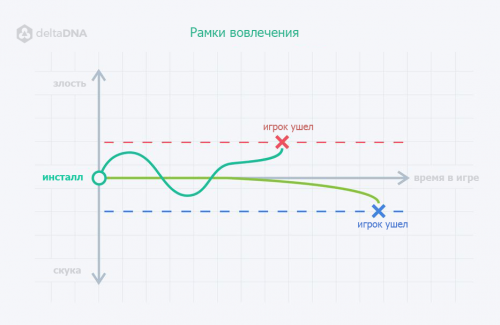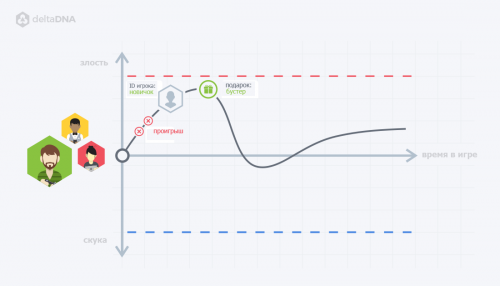If all players are treated the same, then some will definitely leave. The approach should be personalized, DeltaDNA believes.
It is impossible to please every player. And there’s no need for that. In the case of free-play games, personalization means that it is necessary to divide users into segments according to certain indicators and adjust the game to each of these groups.
From the point of view of gameplay, it is important to find a balance between boredom, which occurs when the game is too easy, and anger from too difficult tasks.
For example, there is a group of novice users. These are the people who just came into the game. You can segment them according to the speed of promotion. If it is difficult for a certain number of people to move forward, then you need to give this group bonuses and hints. If the developer sees that users are progressing too fast, then this group needs to increase the complexity.
The speed of promotion is not the only parameter by which players can be segmented. The authors of DeltaDNA suggest dividing users into those who rarely use social features, and those who use them often. Those who willingly share information about the game on social networks can be offered it more often – and for an additional reward.
In the case of monetization, personalization is based on the same principle. DeltaDNA experts advise to find out what type of players belong to. If these are non-paying users, then you can offer them a mix of full-screen and motivated advertising. If the player is willing to pay, then you can completely save him from having to watch commercial videos.
A source: https://deltadna.com



